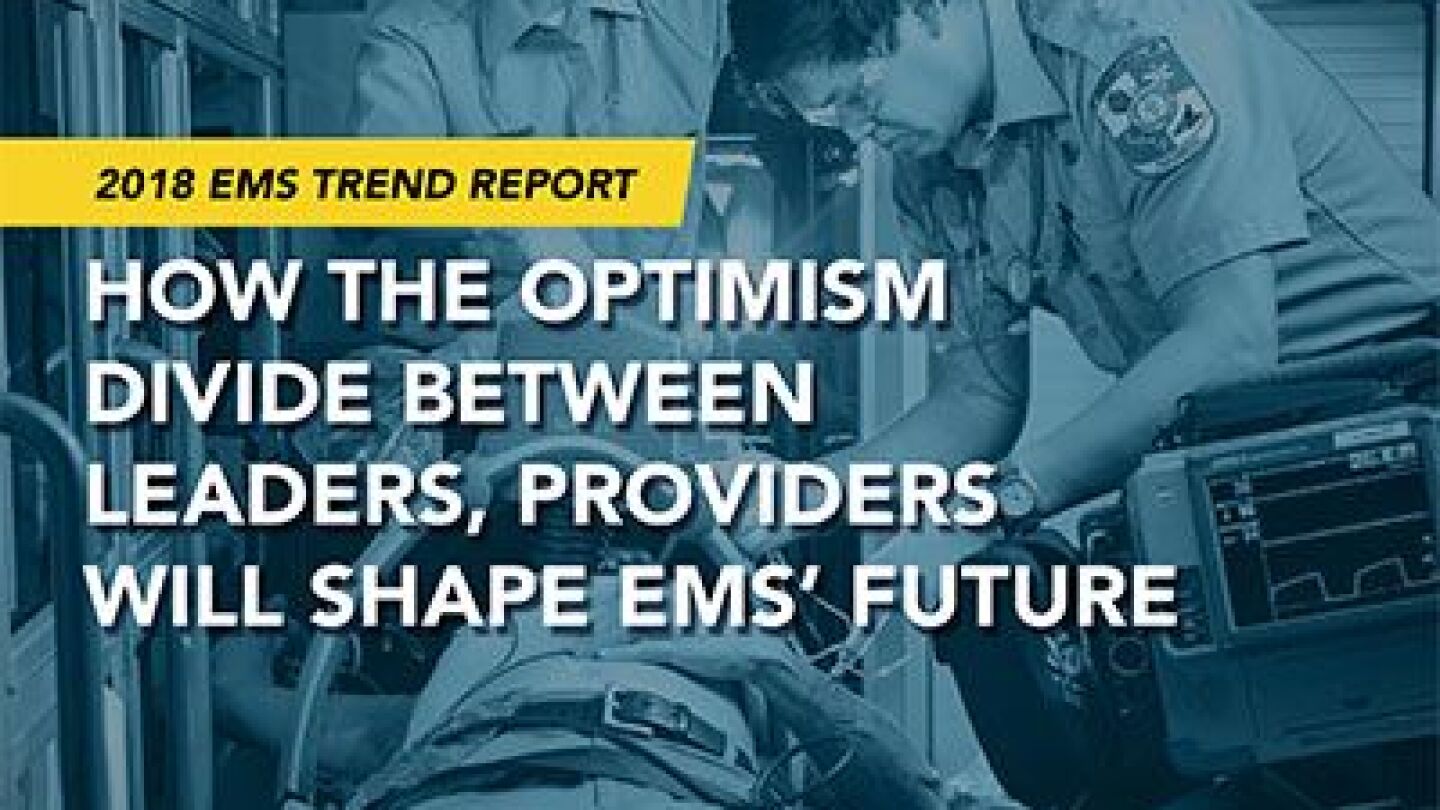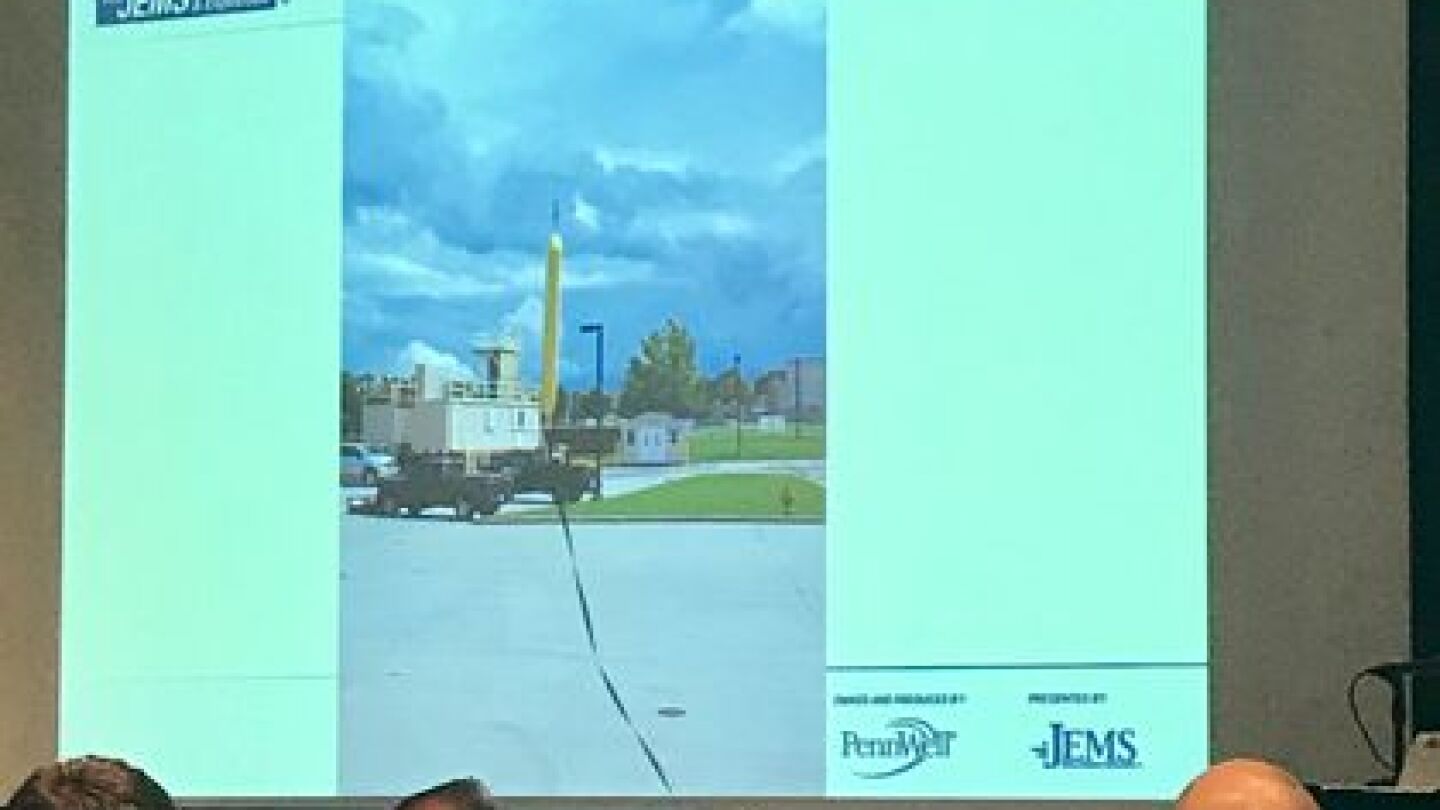EMS1 Research Center
The EMS1 Research Center serves as a central access point for critical prehospital medicine research that can help drive operational and policy changes at the local, state and federal level.
Get insights into EMS provider behavior and beliefs related to hot topics like fatigue management, and participate in EMS1 polls and surveys.
Additionally, find the latest information about research conducted by esteemed EMS organizations, such as the American Ambulance Association, and National Association of EMS Physicians, among other organizations focused on provider health and wellness, patient assessment and treatment, and a variety of safety issues.
“There is no substitute for experience. Yet, regardless of experience level, it is important to consider how EMS education can teach situational awareness”
The state-of-the industry survey focuses on wellness, career development and satisfaction in EMS
Obstetrics studies reveal best practices in newborn suctioning, umbilical cord clamping
About 1 in 50,000 young athletes dies from sudden cardiac failure, but sudden cardiac death is the most common nontraumatic cause of death among college athletes
Despite attempts to steer patients away from the emergency room, visits have increased by 44 percent since 2006
New research questions whether pharmacotherapy in cardiac arrest is effective at ROSC and long-term survival
EMS1 and Fitch & Associates take an in-depth look at EMS trends in the United States and set a foundation for assessing how the EMS profession is changing
Hennepin Healthcare announced it will halt a clinical trial on ketamine following criticism over the hospital enrolling patients before getting consent
A randomized clinical trial of ED intubations showed a statistically significant improvement in first pass success rates when using a bougie
An NREMT study demonstrates the factors that lead to attrition in EMS and areas important to EMS retention efforts
Researchers said droperidol is a safer, easier to administer alternative to midazolam for calming violent, intoxicated patients
Top takeaways for prehospital care of diabetic patients after filtering 2.5 million EMS encounters in the EMS Index
King County, Washington successfully introduced hand-drawn epinephrine to EMTs for severe allergic reactions and anaphylaxis
Further research is needed to determine if naloxone access laws actually increase distribution and use of naloxone, and high-risk behavior by patients with opioid use disorder
The study suggested that opioids might not treat chronic pain, such as hip or knee arthritis conditions, any better than non-opioid medication
Two national studies increased the treatment window from six hours to 24, a potential life-saver for people who have strokes during sleep
Investigators found no difference in paramedic student recognition of scene hazards between a walk-around size-up and UAV flyover video
One medical director is challenging the current pediatric intubation paradigm, exploring direct and video laryngoscopy
Learn how to stand up a UAS program at your agency, how to pass the AKT and two potential ways drones can save lives
Modern research is dispelling treatment misconceptions and out-of-date practices that are limiting the standard of care
Scientists said the African Matabele ants have been observed rescuing their injured comrades, cleaning their wounds and maybe even administering antibiotics
The effectiveness estimates come from the tracking of about 4,600 children and adult patients in five states
New Mexico had one of the highest overdose rates in the nation for the better part of two decades
HCMC in Minneapolis and Regions Hospital in St. Paul have emerged as pioneers in frostbite treatment and earned national recognition for their work
The UCF RESTORES program is looking at how PTSD can be diagnosed through identifying blood patterns in the brain instead of psychiatric evaluations
A report links fentanyl use with a particular form of sudden amnesia that produces distinctive results noted in brain scans
What are the alternative conclusions to a Harvard Medical School examination of glucagon administration in three years of NEMSIS data?
The study found that the risk was six times higher in the first week after the flu is diagnosed, compared to the year before and after the bug hits
Diabetics who call 911 during a hypoglycemic episode have a 3 in 4 chance the responding EMS provider will not be able to administer the lifesaving drug
According to the reports, violence against paramedics is the fastest growing area of EVENT, with 52 incidents reported in 2017
An NIH study found that alcohol-related visits increased 50 percent from 2006 to 2014, especially among women and middle-aged to older patients
Expert opinion and guidelines can frame this important EMS health and safety issue and guide future research and progress





















